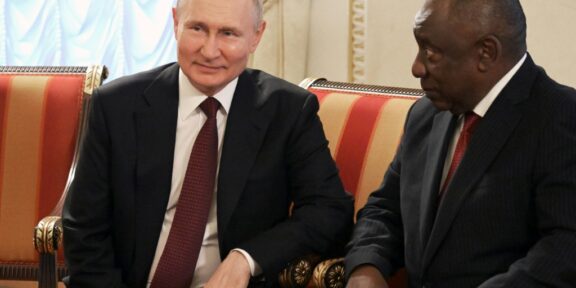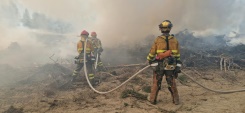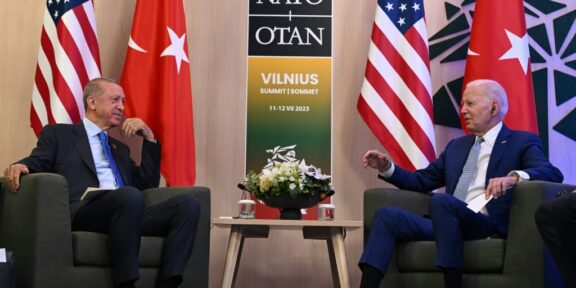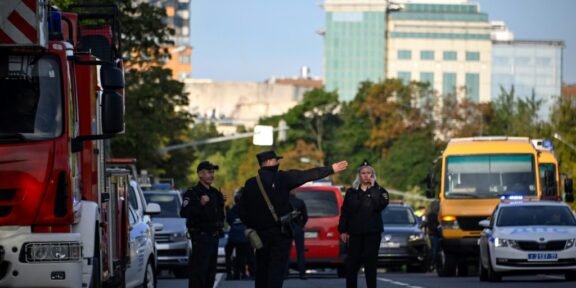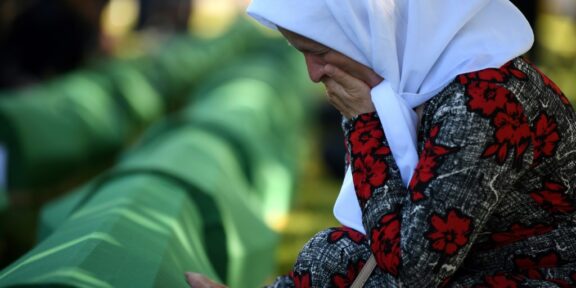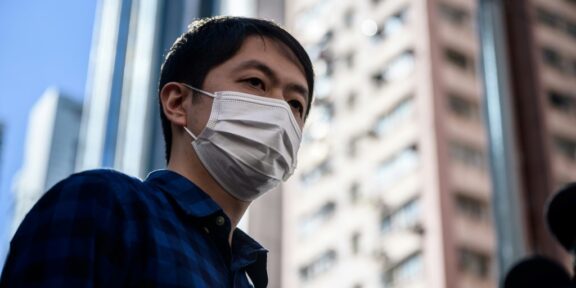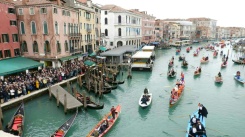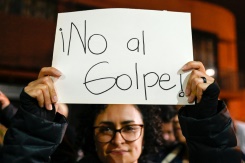
Guatemala’s highest court issued a temporary injunction Thursday blocking the controversial suspension of presidential runoff candidate Bernardo Arevalo’s political party.
The suspension of the Semilla (Seed) party on Wednesday by a lower court was the latest legal challenge to Guatemala’s presidential first round vote last month and prompted more international concern over perceived interference.
After the Constitutional Court issued a dry, terse order blocking the suspension, Semilla welcomed the move. The party said the lower court had “violated the electoral process” and that the higher court “preventively granted the protection” that the party requested Wednesday night.
Arevalo finished second behind Sandra Torres in the June 25 election. The two are scheduled to compete in a runoff on August 20 to become leader of a country beset by poverty, corruption and gang violence.
As both are from social democratic parties, the contest would yield the Central American country’s first leftist president in more than a decade.
But a court on Wednesday granted a request for suspension of the Semilla party brought by Guatemala’s special anti-graft prosecutor Rafael Curruchiche, who is under US sanctions.
Curruchiche’s office claimed thousands of people were illegally registered as Semilla party member, “through falsification of documents.”
The ruling against Semilla sparked protests in the capital and stern rebukes internationally, including from the United Nations, United States and European Union.
UN Secretary-General Antonio Guterres “notes with concern reports of attempts to impact the second round of elections, and the growing tension this is causing,” the office of his spokesperson said on Thursday.
Guterres “urges all the actors to continue their work with responsibility and impartiality,” it added.
Arevalo said Thursday he would take Curruchiche to court, slamming the prosecutor — who also ordered a raid of the national citizens’ registry — as corrupt.
“We are making use of the resources and tools still left of our democracy because the stakes are high,” Arevalo said.
Curruchiche was appointed by Attorney General Consuelo Porras, who features on a US list of “corrupt actors.”
He had abruptly fired Curruchiche’s predecessor — now in exile — sparking widespread condemnation.
– ‘Incredible threat’ –
On Wednesday, Guatemala’s Supreme Electoral Tribunal (TSE) gave the green light for the runoff round to go ahead following a review requested by nine right-wing parties claiming interference with voting records.
The TSE had also filed suit against the court which granted the Semilla suspension.
The ruling against Semilla prompted protests in Guatemala City and criticism from abroad.
The US State Department said Washington was “deeply concerned” by attempts to revoke Semilla’s legal status.
“These actions put at risk the legitimacy of the electoral process at the core of Guatemala’s democracy,” spokesman Matthew Miller said in a statement.
“The will of the Guatemalan people, as expressed through the June 25 elections results, must be respected,” he added.
The European Union also expressed “grave concern over the persistent attempts to undermine the integrity of these election results.”
It called on Guatemalan institutions “to fully respect the integrity of the electoral process and the outcome of the first round of voting, which was closely followed by national and international observers.”
For its part, Guatemala’s CACIF business association said: “It is imperative to respect the decision of the highest electoral entity and the will of Guatemalans expressed at the polls.”
Arevalo’s running mate Karyn Herrera said Curruchiche “has sought to frustrate the hope of a people wanting a change.”
“We are a danger that they did not see coming,” she said of the attack on Semilla, which is seeking relief from the Constitutional Court to “defend democracy and constitutional order.”
Arevalo is the son of reformist former president Juan Jose Arevalo. Torres is the ex-wife of former president Alvaro Colom.
In the first round voting, Torres won 15.86 percent of the vote and Arevalo 11.77 percent, beating out 20 other candidates.
Arevalo backers protested outside the offices of the Supreme Electoral Tribunal late Wednesday.
“We are fighting to defend the Guatemalan democratic system. For the first time it is under an incredible threat and very large forces are moving to destroy it, but we are here to defend it,” demonstrator Victor Castro told AFP.

